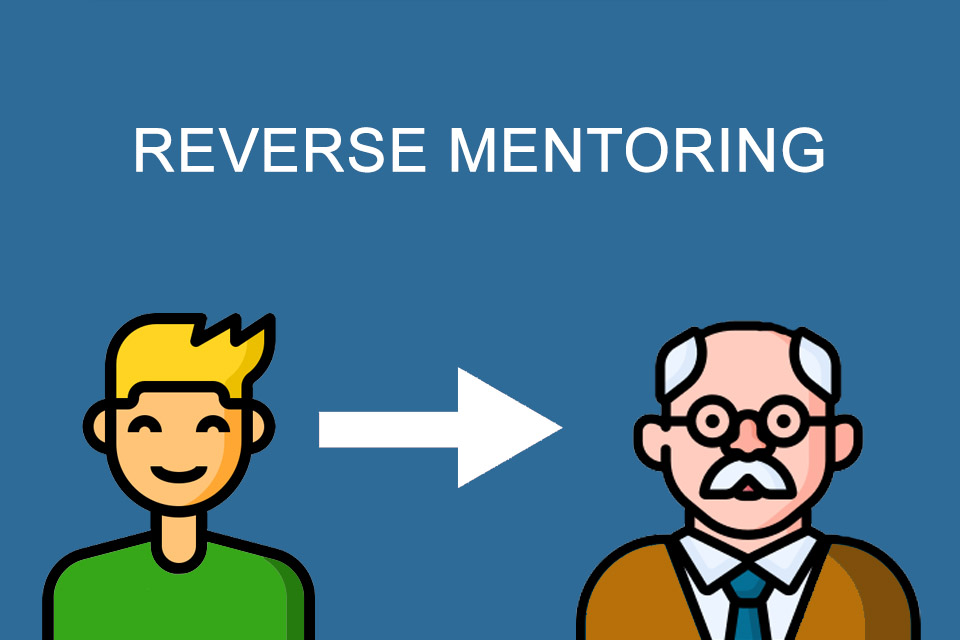What is Reverse Mentoring?
Smartpedia: Reverse Mentoring involves younger people sharing knowledge with older ones, reversing usual roles. Key to its success is the mentor’s competence.
Reverse Mentoring – benefit from younger people’s experiences
Mentoring refers to the personal transfer of knowledge between experienced and less experienced people. It is used in many organisations – i.e. companies, authorities, universities or associations – as an instrument for personnel development. Mentoring usually means that an older employee – the mentor – passes on his or her specialist knowledge to a younger employee – the mentee or protégé. Reverse mentoring is the opposite: a younger employee passes on his or her knowledge to the older employee. The aim of both mentoring and reverse mentoring is to support the mentee individually in questions, challenges and decisions.
Reverse mentoring and mentoring
Whether the term reverse mentoring is necessary or not is often discussed in practice. Are reverse mentoring and mentoring really different or are they two sides of the same coin?
The term mentor goes back to a figure of Greek mythology: Mentor was the teacher of Telemach, the son of Odysseus. Indirectly it can be deduced that a mentor not only possesses more knowledge and experience than the protégé, but that he or she is also older. But this does not have to be the case, because experience is created by dealing with a subject or repeatedly carrying out activities. This means that they are not necessarily dependent on age. In other words, older people can have knowledge and experience that younger people do not, and younger people can have knowledge and experience that older people do not. A common example is the “digital natives”, people who grew up with many digital devices and technologies at a young age. These digital natives often find it easier to use new technologies, apps, tools and websites than older people.
The comparison between reverse mentoring and mentoring becomes interesting when the word “experience” is replaced by the word “competence”: Experience is often equated with age and maturity, while competence has more to do with knowledge and ability. And that’s what it’s all about: profiting from each other’s competence. And so mentoring and reverse mentoring would be two sides of the same coin.
Rules for mentoring and reverse mentoring
Basically, it is important to define a few rules for mentoring and reverse mentoring:
- How are mentors and mentees selected?
- How, where, about what and in what frequency do mentor and mentee communicate?
- Are there expectations, manners, taboos?
Ideally, mentor / reverse mentor and protégé develop a trusting partnership in which they exchange, advise and learn from each other. A Digital Native may be more familiar with social media and can provide a “young” perspective on issues. An older employee probably knows a number of technical methods, has already mastered professional crises or conducted contract and salary negotiations. In such a constellation, both parties benefit from each other.
Impulse to discuss
From your point of view, how important is it to specify the direction when naming mentoring? Or asked differently: Wouldn’t it be enough to speak of mentoring in general terms?
Notes:
There are now two other terms in the context of mentoring: the grow-buddy concept and the buddy principle. Both concepts or principles take the idea of reverse mentoring even further and declare all parties to be mentors and mentees as well. The participants are both learners and teachers who learn from and with each other.
If you like the article or would like to discuss it, please feel free to share it in your network. And if you have any comments, please do not hesitate to send us a message.
Here you will find additional information from our t2informatik Blog:



